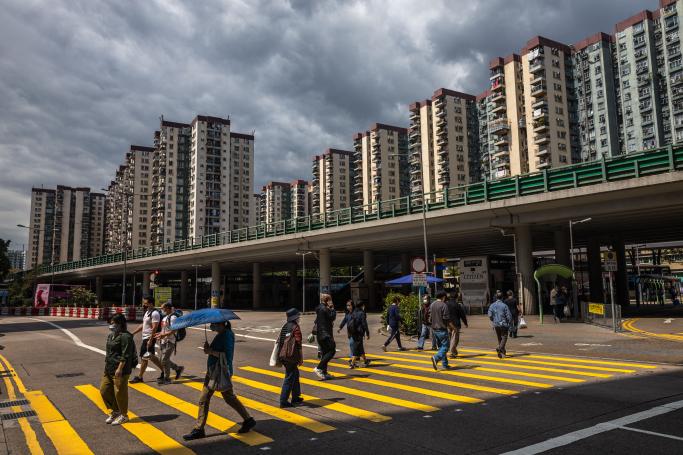Nearly three-quarters of Hong Kong's refugees are struggling to put food on the table, according to a survey released Friday, as fears over the city's plans to control its worst-ever coronavirus outbreak spark bouts of panic-buying.
Mixed messages from authorities about a planned lockdown and mass testing of all 7.4 million city residents have led to a frenzied stripping of supermarket shelves, sending food prices soaring.
In a survey released Friday by the Refugee Concern Network (RCN), 73 percent of refugees and asylum seekers -- legally forbidden from working in Hong Kong -- were unable to buy food between late February and early March, while nearly 70 percent lack supplies for meals this week.
"These findings... suggest that Hong Kong’s community of over 14,000 refugees and asylum seekers is now facing dire humanitarian situations as the fifth wave peaks in the city," RCN said in a statement, pointing to the survey's sample size of about 120 refugees.
The small but vulnerable community relies on a monthly food allowance of HK$1,200 ($153) in the form of e-tokens, only to be spent in supermarkets, where the prices are higher than local wet markets.
With local law barring refugees from employment while waiting for asylum applications to be approved, they mostly live in cramped spaces, with three or four sharing a room for years.
Limited cash flow also means they struggle to get household necessities like toilet paper, menstrual pads and diapers, with 55 percent saying they currently do not have enough of these items at home.
"Without the right to work in Hong Kong, they are made dependent, by policy design, on meagre subsidies from" the government, the statement said.
It called for authorities to arrange for "life-dependent subsidies" through the city's ubiquitous Octopus cards -- used for public transportation and in stores -- to address their most pressing needs.
The Hong Kong Branch of the International Social Service -- a government-contracted organisation that distributes aid to refugees -- said there has not been a surge in requests from the community over food emergencies.
A government spokesperson, meanwhile, told AFP the e-tokens distributed by ISS were "effective", and the government did not "consider it appropriate to modify the mode of delivery".
But Preston Cheung of Justice Centre, a local non-profit that last week sounded the alarm on food scarcity, told AFP the network had received up to 100 requests for help in recent weeks.
Harry, a refugee in his 20s from a country in the Middle East, told AFP visits to his local supermarket have been very frustrating, as canned goods and vegetables have jumped in price by 30 to 40 percent.
"Life is getting harder and harder every day," said Harry, who requested a pseudonym and asked that his home country not be revealed for fear of repercussions. "It's very stressful."
AFP












